Status quo for Indian apps in Google row; D2C brands push offline
Also in this letter:
■ Nasscom plea to Karnataka govt on cab fares
■ ETtech Done Deals
■ ONDC’s one-year journey
Google to reinstate delisted Indian apps on Play Store after govt intervention
IT minister Ashwini Vaishnaw (centre), Google India head Sanjay Gupta (on Vaishnaw’s right), and startup representatives
Google is ‘temporarily reinstating’ apps of Indian internet companies that were delisted from Play Store on March 1. This comes after Union IT minister Ashwini Vaishnaw on Monday met with representatives of Google and startups.
Driving the news: Google is providing an extended timeline to ten companies to pay the service fee applicable for in-app purchases made by users. According to sources, the timeline will be stretched till the time there is a concrete verdict from the Supreme Court.
About the meeting: Vaishnaw said the US tech giant has been supporting India’s technology development journey. “Google and the startup community have met with us, (and) we have had very constructive discussions…Google has agreed to list all the apps,” he said.
Also read | ETtech Explainer: Why are Indian startups up in arms against Google Billing?
Quote, unquote: In a statement on Tuesday, Google said, “Google maintains its right to implement and enforce its business model, as established in various courts.” The company added, “We will invoice our full applicable services fees in the interim and are extending payment timelines for these companies. We look forward to a collaborative effort to find solutions that respect the needs of all parties.”
‘Burdensome for digital startups’: Murugavel Janakiraman, founder and CEO of Matrimony.com, one of the companies impacted by Google’s Friday move to delist non-compliant apps, told ET, “We continue to maintain that the Google fee of 11% to 26% for digital services apps is highly burdensome for digital startups.”
“We look forward to working with Google on ensuring app developers have the freedom of choice in choosing payment gateways and that market forces will decide the payment gateway charges. This is required for the long term sustenance of apps, and for our thriving startup ecosystem,” he added.
Also read | Indian internet companies dial up fight against Google
D2C brands step up offline presence to push growth

Prominent direct-to-consumer (D2C) brands have been scripting a strategic pivot to rapidly scale up in physical retail over the past year in a bid to drive growth.
Offline in focus: Companies such as meat delivery startup Licious and cosmetics firm Minimalist have taken the omnichannel route.
Millet-based snack brand Slurrp Farm, cosmetics makers Just Herbs and Sugar Cosmetics, lingerie brand Zivame, eyewear retailer Lenskart, wearables brand Boat and beauty retailer Nykaa are among those that have opened physical stores.
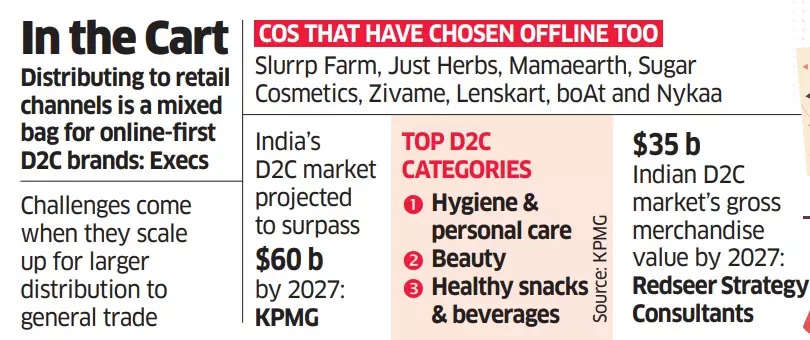
Personal care company Honasa Consumer, which owns Mamaearth, has expanded omnichannel distribution with over 1.7 lakh retail touch points, increasing distribution by 37% year-on-year, cofounder Ghazal Alagh wrote in a post on X.
Zoom out: Challenges for such internet-first brands going offline come when they scale up for larger distribution to general trade.
“Offline is a tough model,” said Rajat Wahi, partner at Deloitte India. “All stores are of different sizes in India, and one needs to understand the nuances of how to manage inventories, damages and so on.”
CEO speak: “Products that sell well online may not do as well offline as you are not catering to the ‘long tail’ niche customer anymore. So tweaks are required in the product strategy,” said Arush Chopra, CEO of Just Herbs.
In an increasingly digital world, the value of physical touchpoints cannot be understated, said Chaitanya Ramalingegowda, cofounder of Wakefit, which sells premium mattresses and sleep solutions.
Nasscom writes to Karnataka govt on uniform cab fare rules
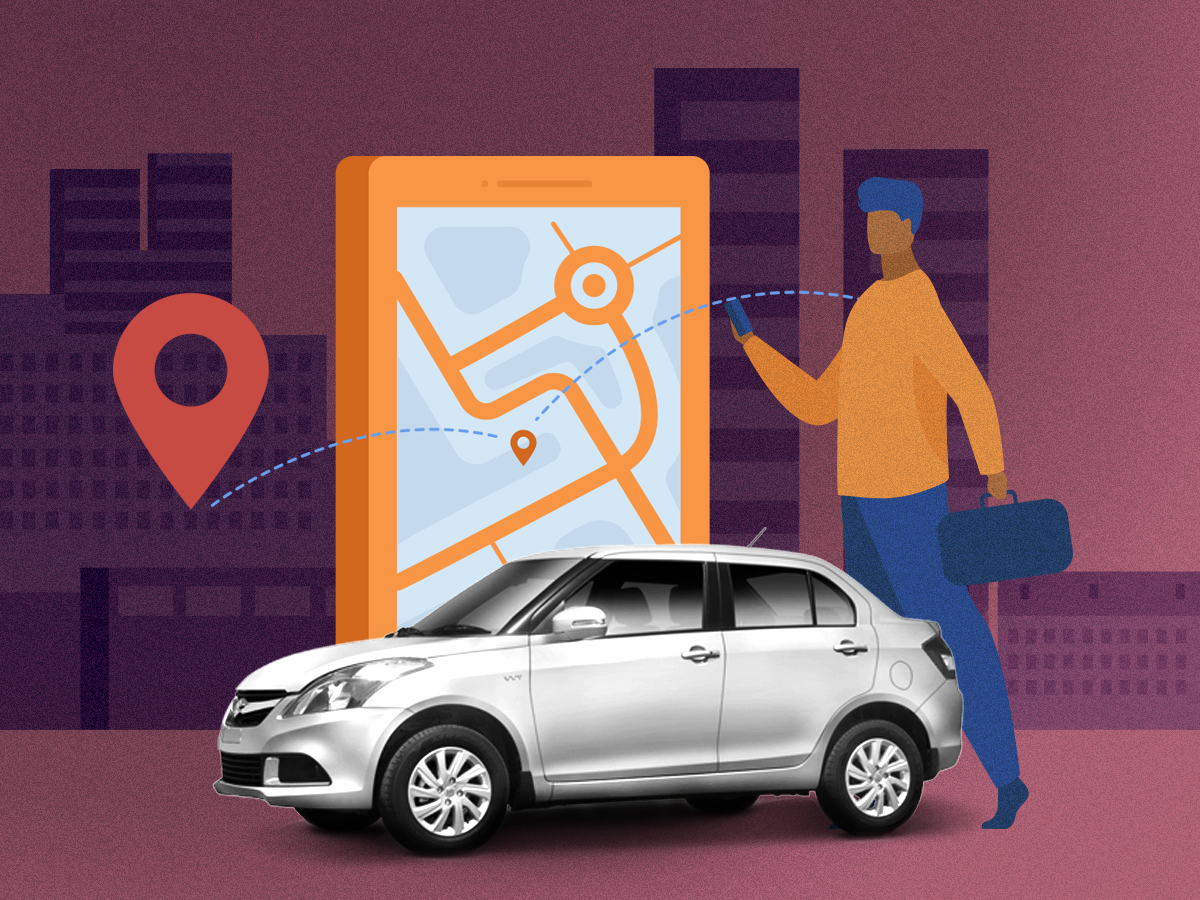
The National Association of Software and Service Companies (Nasscom) has written to the Karnataka state government seeking a review of its uniform fare structure for cabs, notified in early February.
Driving the news: In a blog post dated February 29, Nasscom’s deputy manager of public policy and government affairs Garima Prakash welcomed the “progress in the minimum fares applicable for rides up to 4 kms”. However, the post also picked up several issues with the new rules.
Concerns raised: Industry body Nasscom said it was concerned about mobility platforms not being allowed to deploy dynamic pricing. The organisation also contested that the new rules did not take into account the value added by app-based taxi aggregators.
“The higher fare for app-based taxis considered the added value (such as, route-tracking, ride-sharing feature, customer care services) offered… However, the new fare structure mandates the same fare for app-based and non-app-based taxis, thereby making it tougher to offer and improve value-added services,” the organisation said in its blog post.
Nasscom’s letter follows one from the Internet and Mobile Association of India (IAMAI) on February 15 which requested an industry-wide consultation on the new cab fares.
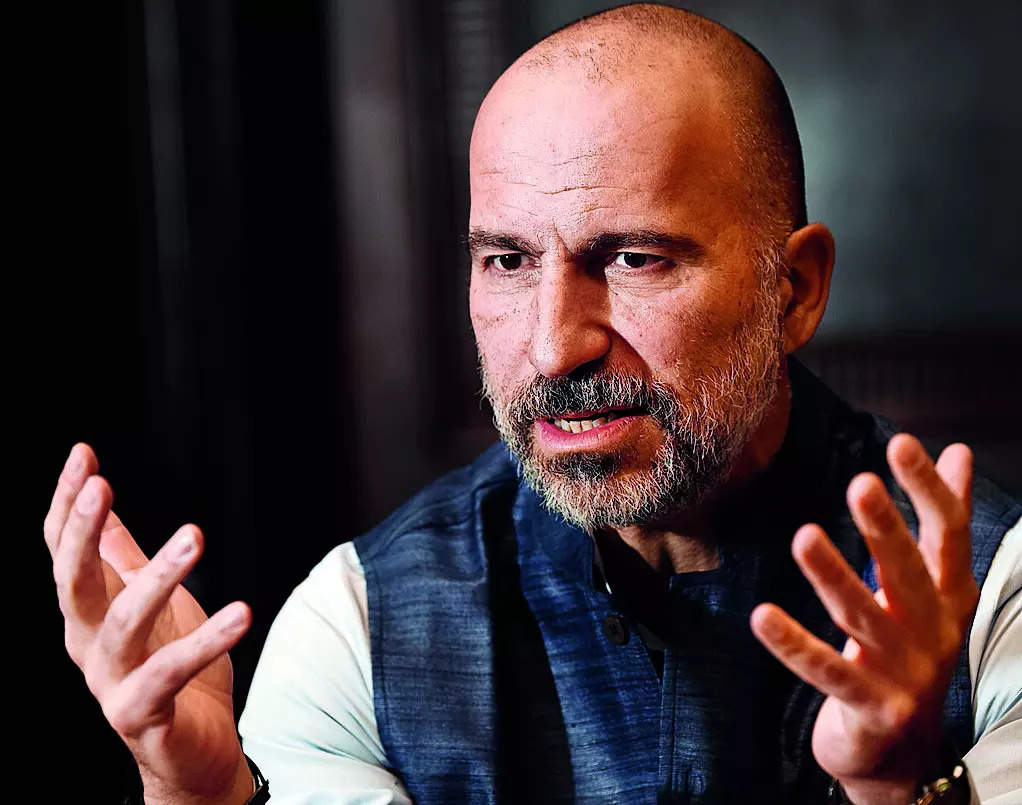
Uber CEO Dara Khosrowshahi
Tell me more: In an interview with ET last month, Uber CEO Dara Khosrowshahi had said, “We would prefer to have more consistent regulation, which allows market forces to determine what the right level of supply or fare is but we also understand it’s a dialogue, it’s not just about what we want.”
Catch up quick: According to the new fare structure announced by the state government on February 4, the vehicles used for cab services have been divided into three categories: those priced below Rs 10 lakh; between Rs 10 lakh and Rs 15 lakh; and above Rs 15 lakh.
The new framework does not allow aggregators to charge surge pricing based on demand.
ETtech Done Deals
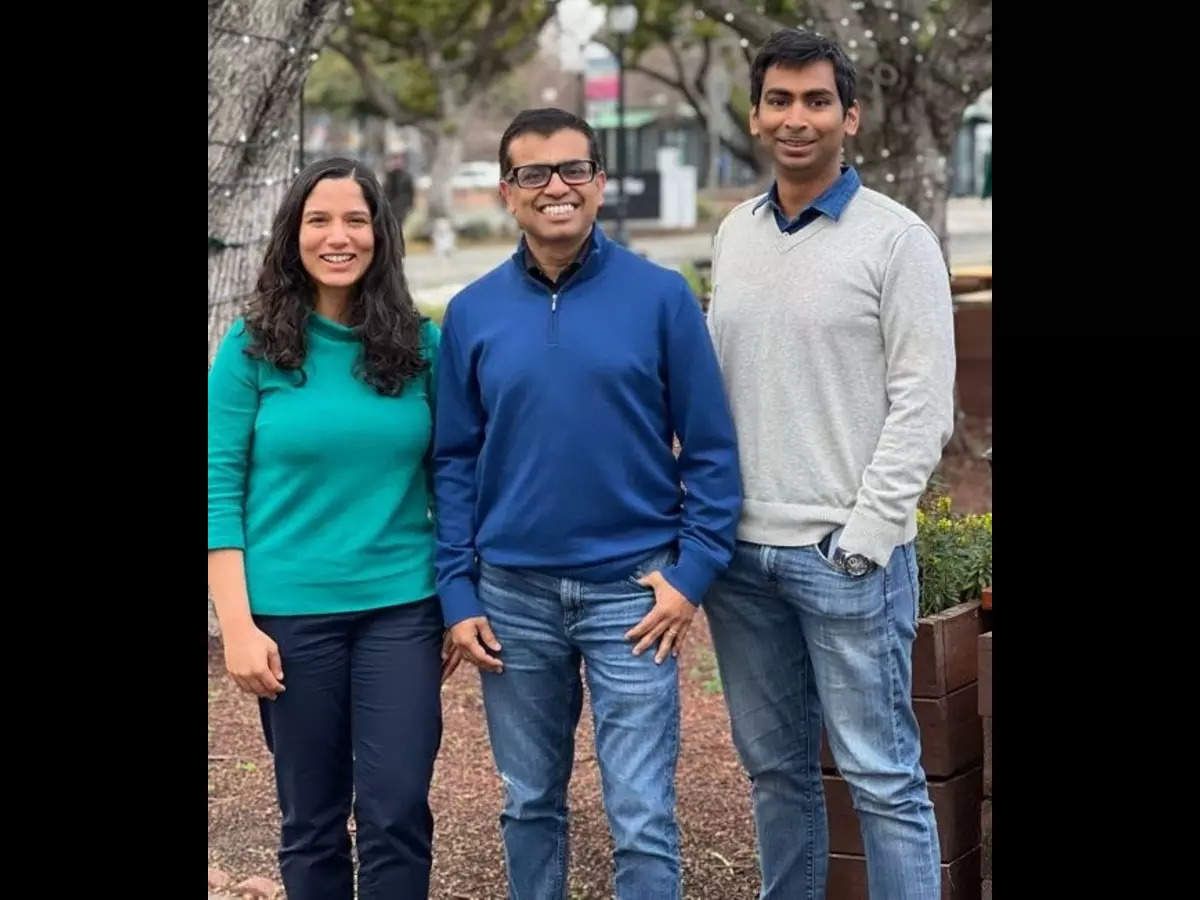
Founding team at Ema (from left): Swati Trehan, Surojit Chatterjee and Souvik Sen
GenAI startup Ema secures $25 million: Enterprise-grade generative AI startup, Ema has raised $25 million in funding led by Accel, Section 32 and Prosus Ventures. Wipro Ventures, Venture Highway, along with prominent names in Silicon Valley including former Meta chief operating officer, Sheryl Sandberg, Yahoo cofounder, Jerry Yang and Snowflake CEO, Sridhar Ramaswamy also participated in the round.
Indonesian startup Wagely raises $23 million: Indonesian fintech startup Wagely has raised $23 million, in a mix of equity and debt, as a part of its latest funding round. The equity portion of the round is led by Capria Ventures, which has invested in the likes of social networking platform, ShareChat, edtech Masai School and Cuemath in India.
Exly raises $6.2 million in latest funding round: Business tools provider for creator economy, Exly has raised $6.2 million in a fresh round of funding led by Chiratae Ventures. Existing investors Mayfield India and Venture Highway also participated as a part of the round.
HCL Group invests Rs 166 crore in Education Initiatives: Information Technology major HCL Group has invested Rs 166 crore to acquire a minority stake in education software company Educational Initiatives (Ei). This is a part of the secondary stake sale, where HCL Group has acquired a portion of the stake held by Mumbai-based private equity fund Gaja Capital in Ei.
A look at ONDC’s one-year journey to over 7.5 million cumulative orders
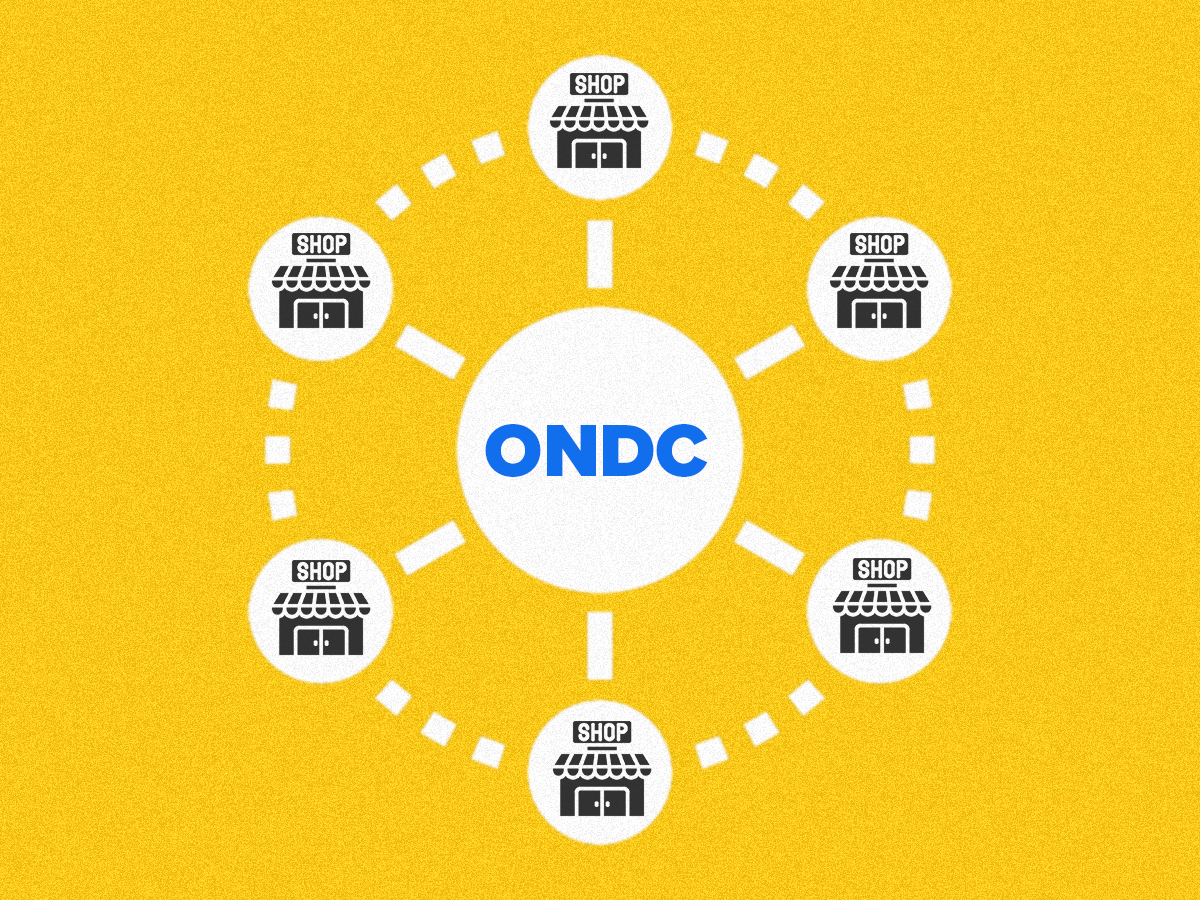
The government-backed Open Network for Digital Commerce (ONDC) completed more than 7.1 million cumulative orders in February since inception in January last year. A look at the key facts and numbers of the platform that promises to democratise ecommerce.
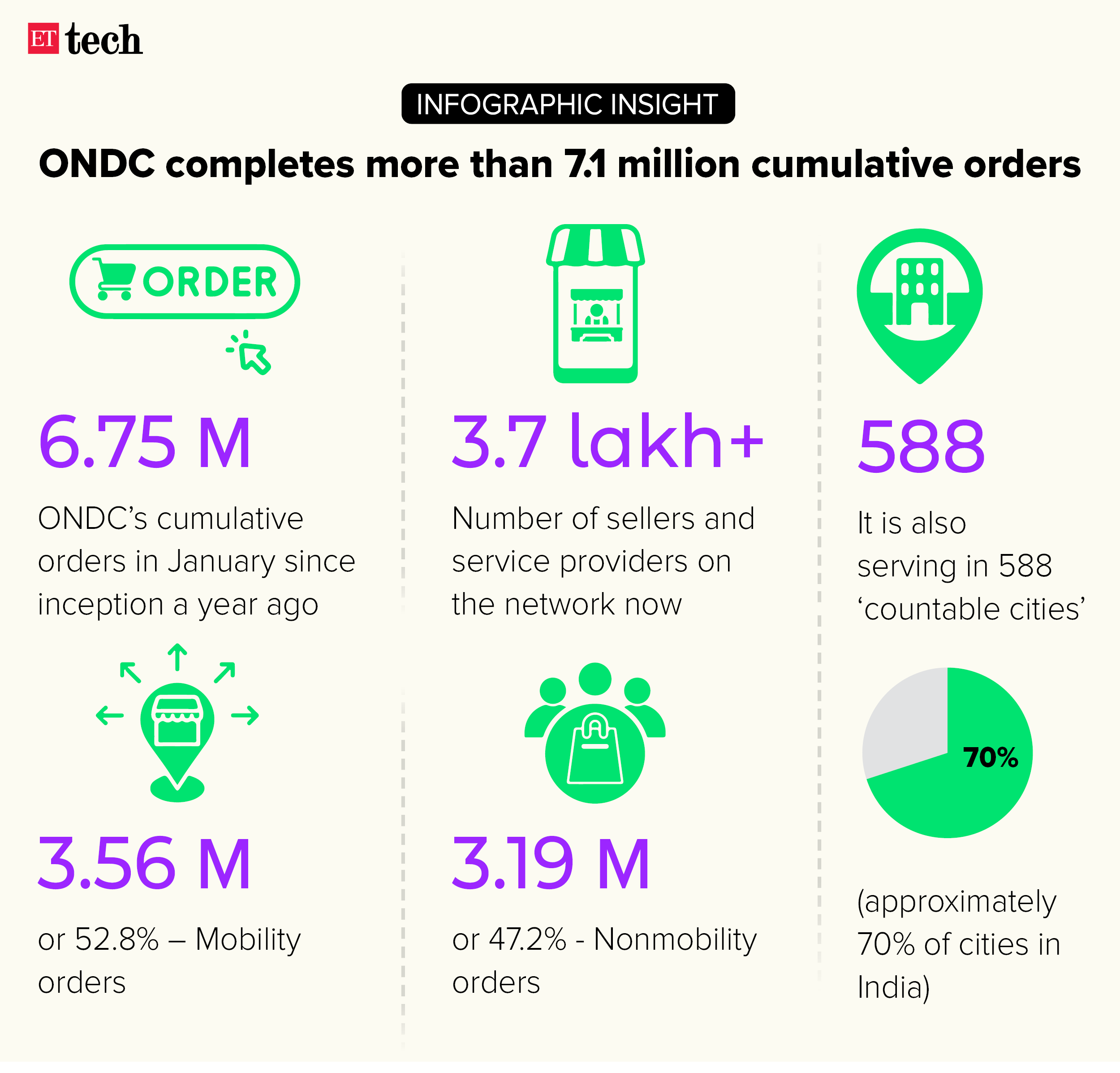
Pilot to onboard 500 street food vendors:
- ONDC has commenced a pilot to onboard street food vendors in Delhi and Lucknow
- The plan is to onboard 500 street food vendors in the next two months in both these cities followed by a nationwide scale up
- Seller apps onboard merchants while buyer apps are customer-facing apps on which orders are placed
Mobility through ONDC is now live in seven cities – Bengaluru, Mysuru, Kolkata, Hyderabad, Delhi, Chennai, and Kochi.
Today’s ETtech Top 5 newsletter was curated by Megha Mishra in Mumbai.
Also in this letter:
■ Nasscom plea to Karnataka govt on cab fares
■ ETtech Done Deals
■ ONDC’s one-year journey
Google to reinstate delisted Indian apps on Play Store after govt intervention
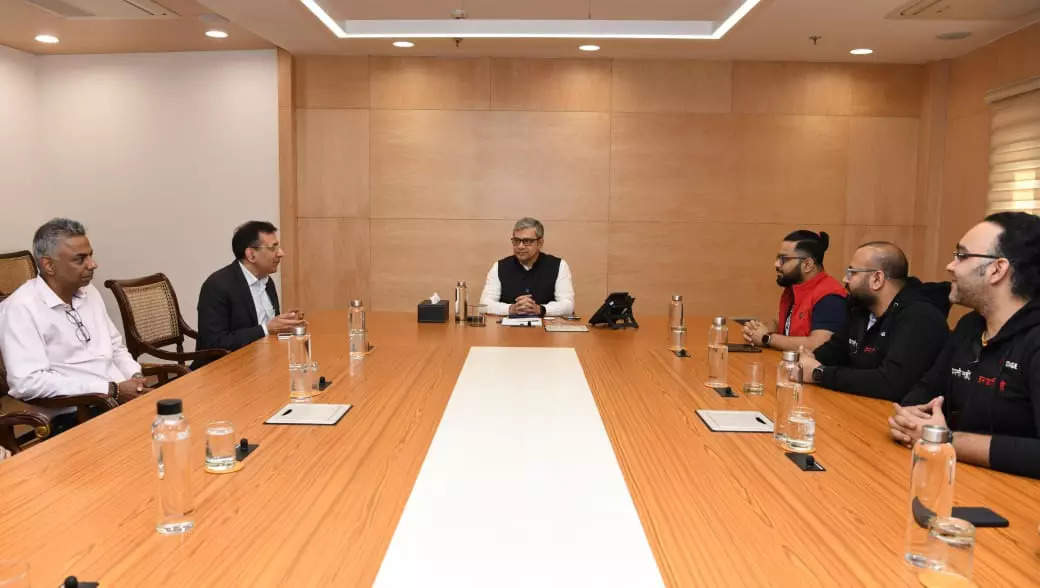
IT minister Ashwini Vaishnaw (centre), Google India head Sanjay Gupta (on Vaishnaw’s right), and startup representatives
Google is ‘temporarily reinstating’ apps of Indian internet companies that were delisted from Play Store on March 1. This comes after Union IT minister Ashwini Vaishnaw on Monday met with representatives of Google and startups.
Driving the news: Google is providing an extended timeline to ten companies to pay the service fee applicable for in-app purchases made by users. According to sources, the timeline will be stretched till the time there is a concrete verdict from the Supreme Court.
About the meeting: Vaishnaw said the US tech giant has been supporting India’s technology development journey. “Google and the startup community have met with us, (and) we have had very constructive discussions…Google has agreed to list all the apps,” he said.
Also read | ETtech Explainer: Why are Indian startups up in arms against Google Billing?
Quote, unquote: In a statement on Tuesday, Google said, “Google maintains its right to implement and enforce its business model, as established in various courts.” The company added, “We will invoice our full applicable services fees in the interim and are extending payment timelines for these companies. We look forward to a collaborative effort to find solutions that respect the needs of all parties.”
‘Burdensome for digital startups’: Murugavel Janakiraman, founder and CEO of Matrimony.com, one of the companies impacted by Google’s Friday move to delist non-compliant apps, told ET, “We continue to maintain that the Google fee of 11% to 26% for digital services apps is highly burdensome for digital startups.”
“We look forward to working with Google on ensuring app developers have the freedom of choice in choosing payment gateways and that market forces will decide the payment gateway charges. This is required for the long term sustenance of apps, and for our thriving startup ecosystem,” he added.
Also read | Indian internet companies dial up fight against Google
D2C brands step up offline presence to push growth

Prominent direct-to-consumer (D2C) brands have been scripting a strategic pivot to rapidly scale up in physical retail over the past year in a bid to drive growth.
Offline in focus: Companies such as meat delivery startup Licious and cosmetics firm Minimalist have taken the omnichannel route.
Millet-based snack brand Slurrp Farm, cosmetics makers Just Herbs and Sugar Cosmetics, lingerie brand Zivame, eyewear retailer Lenskart, wearables brand Boat and beauty retailer Nykaa are among those that have opened physical stores.

Personal care company Honasa Consumer, which owns Mamaearth, has expanded omnichannel distribution with over 1.7 lakh retail touch points, increasing distribution by 37% year-on-year, cofounder Ghazal Alagh wrote in a post on X.
Zoom out: Challenges for such internet-first brands going offline come when they scale up for larger distribution to general trade.
“Offline is a tough model,” said Rajat Wahi, partner at Deloitte India. “All stores are of different sizes in India, and one needs to understand the nuances of how to manage inventories, damages and so on.”
CEO speak: “Products that sell well online may not do as well offline as you are not catering to the ‘long tail’ niche customer anymore. So tweaks are required in the product strategy,” said Arush Chopra, CEO of Just Herbs.
In an increasingly digital world, the value of physical touchpoints cannot be understated, said Chaitanya Ramalingegowda, cofounder of Wakefit, which sells premium mattresses and sleep solutions.
Nasscom writes to Karnataka govt on uniform cab fare rules

The National Association of Software and Service Companies (Nasscom) has written to the Karnataka state government seeking a review of its uniform fare structure for cabs, notified in early February.
Driving the news: In a blog post dated February 29, Nasscom’s deputy manager of public policy and government affairs Garima Prakash welcomed the “progress in the minimum fares applicable for rides up to 4 kms”. However, the post also picked up several issues with the new rules.
Concerns raised: Industry body Nasscom said it was concerned about mobility platforms not being allowed to deploy dynamic pricing. The organisation also contested that the new rules did not take into account the value added by app-based taxi aggregators.
“The higher fare for app-based taxis considered the added value (such as, route-tracking, ride-sharing feature, customer care services) offered… However, the new fare structure mandates the same fare for app-based and non-app-based taxis, thereby making it tougher to offer and improve value-added services,” the organisation said in its blog post.
Nasscom’s letter follows one from the Internet and Mobile Association of India (IAMAI) on February 15 which requested an industry-wide consultation on the new cab fares.

Uber CEO Dara Khosrowshahi
Tell me more: In an interview with ET last month, Uber CEO Dara Khosrowshahi had said, “We would prefer to have more consistent regulation, which allows market forces to determine what the right level of supply or fare is but we also understand it’s a dialogue, it’s not just about what we want.”
Catch up quick: According to the new fare structure announced by the state government on February 4, the vehicles used for cab services have been divided into three categories: those priced below Rs 10 lakh; between Rs 10 lakh and Rs 15 lakh; and above Rs 15 lakh.
The new framework does not allow aggregators to charge surge pricing based on demand.
ETtech Done Deals

Founding team at Ema (from left): Swati Trehan, Surojit Chatterjee and Souvik Sen
GenAI startup Ema secures $25 million: Enterprise-grade generative AI startup, Ema has raised $25 million in funding led by Accel, Section 32 and Prosus Ventures. Wipro Ventures, Venture Highway, along with prominent names in Silicon Valley including former Meta chief operating officer, Sheryl Sandberg, Yahoo cofounder, Jerry Yang and Snowflake CEO, Sridhar Ramaswamy also participated in the round.
Indonesian startup Wagely raises $23 million: Indonesian fintech startup Wagely has raised $23 million, in a mix of equity and debt, as a part of its latest funding round. The equity portion of the round is led by Capria Ventures, which has invested in the likes of social networking platform, ShareChat, edtech Masai School and Cuemath in India.
Exly raises $6.2 million in latest funding round: Business tools provider for creator economy, Exly has raised $6.2 million in a fresh round of funding led by Chiratae Ventures. Existing investors Mayfield India and Venture Highway also participated as a part of the round.
HCL Group invests Rs 166 crore in Education Initiatives: Information Technology major HCL Group has invested Rs 166 crore to acquire a minority stake in education software company Educational Initiatives (Ei). This is a part of the secondary stake sale, where HCL Group has acquired a portion of the stake held by Mumbai-based private equity fund Gaja Capital in Ei.
A look at ONDC’s one-year journey to over 7.5 million cumulative orders

The government-backed Open Network for Digital Commerce (ONDC) completed more than 7.1 million cumulative orders in February since inception in January last year. A look at the key facts and numbers of the platform that promises to democratise ecommerce.

Pilot to onboard 500 street food vendors:
- ONDC has commenced a pilot to onboard street food vendors in Delhi and Lucknow
- The plan is to onboard 500 street food vendors in the next two months in both these cities followed by a nationwide scale up
- Seller apps onboard merchants while buyer apps are customer-facing apps on which orders are placed
Mobility through ONDC is now live in seven cities – Bengaluru, Mysuru, Kolkata, Hyderabad, Delhi, Chennai, and Kochi.
Today’s ETtech Top 5 newsletter was curated by Megha Mishra in Mumbai.
